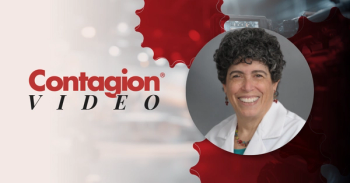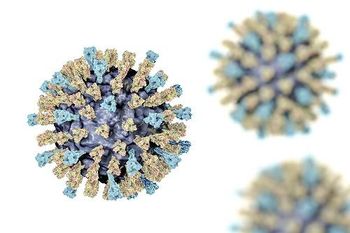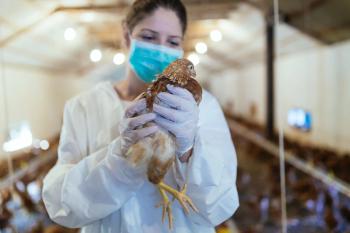
Case Studies of Effective Twitter Use in Medicine
John Nosta, BA: What other data, as we talk about the work that you’ve done, is compelling? Is Twitter an epidemiological tool, too?
Debra A. Goff, PharmD, FCCP: It can be. There is some fascinating work. I’ll just share 1 story about what we identified in our study that I did with surgeons. Are we connecting with them? Would they retweet, based on not knowing me personally? Clearly, I’m not a surgeon. Would they retweet something from me because Dr. Nwomeh liked it or tweeted it? If it was attached to something like a link to a PubMed abstract—the evidence-based, scientific analytical part of being in health care—that I provided on an article that described this drug-resistant infection in surgical wounds? Again, keeping it relevant to them or this antibiotic class that causes a high prevalence of C diff, clostridium difficile, surgeons get the consequence of C diff, because fatal C diff is a surgical emergency.
John Nosta, BA: I think even for consumers. C diff is a consumer term now, right?
Debra A. Goff, PharmD, FCCP: Right. So the one tweet that resonated the most was this KPC [klebsiella pneumoniae carbapenemase] outbreak. KPC is a resistance to a gram-negative bacteria. At the time I am recalling, it was fairly new. Surgeons use duodenoscopes for procedures and clean them according to the manufacturer’s directions. KPCs weren’t around when the tools were developed, so the sterile technique could not kill a KPC. So the University of California, Los Angeles, had this outbreak. Patients actually died from the untreatable KPC gram-negative infection caused by contaminated duodenoscopes. So, an elective surgical procedure actually killed patients. As a surgeon, you could imagine the liability you’ve now got and how horrid you would feel.
John Nosta, BA: Certainly, yes.
Debra A. Goff, PharmD, FCCP: As that outbreak was occurring, it was on the front page of the Los Angeles Times. It was happening in real time. I knew they may not even know what KPC stands for, nor what antibiotic you should give to someone who acquired this from a procedure.
John Nosta, BA: Yes, sure.
Debra A. Goff, PharmD, FCCP: So I linked it to a medical article on the management of KPC infections. For gram-negatives, it reviewed appropriate antibiotics. That was the most retweeted tweet. That one tweet that was retweeted by Dr. Ben Nwomeh reached 15,800 people, most of whom were surgeons. That’s the power of Twitter. That was in real time, John. If I waited for the outbreak to be published…
John Nosta, BA: Oh, it would be a year, right?
Debra A. Goff, PharmD, FCCP: Exactly. It was 1 year later. So that was the value of it.
John Nosta, BA: What about the value of Twitter as a tool in academic institutions, congresses, meetings, or at IDWeek?
Debra A. Goff, PharmD, FCCP: It’s so powerful.
John Nosta, BA: I think that people completely miss that.
Debra A. Goff, PharmD, FCCP: You’re correct. I was at IDWeek, and I was a power tweeter because I have a bigger network, and I enjoy tweeting. Everybody can’t be at the meeting. Maybe there’s no funding to send you. Maybe the timing isn’t right. Maybe you’re on service, taking care of patients, and you can’t leave. So there are many reasons. But wouldn’t you like to know what’s happening at your national meeting? Tweeting allows you to disseminate outside of the walls of the meeting. You reach a much bigger audience, globally.
John Nosta, BA: And it’s not only inside-out, but it’s outside-in.
Debra A. Goff, PharmD, FCCP: Yes.
John Nosta, BA: So I can attend IDWeek virtually, right? I’ve got power tweeters like you doing all of the hard work to consolidate 2 or 3 hours of talks into 1, 2, or 3 key points. And once you build the trust with that individual, you really want them to….
Debra A. Goff, PharmD, FCCP: Right. Again, I learned that from my surgical colleagues. The American College of Surgeons… I think 20,000 surgeons attend that meeting. Surgery is very siloed. You’re a gastrointestinal surgeon or you’re a heart surgeon. They don’t even cross paths. But at the American College of Surgeons, it’s everybody. So they have power tweeters who are tweeting galore. If I’m presenting breaking work, I want my work to be known and recognized. I’m not presenting it just for the audience that is there. It allows me to have someone tweet my work. All of a sudden, a much bigger audience is seeing my research, not just the attendees.
John Nosta, BA: It’s like publishing a paper and having that paper referenced a lot. That’s the basis for a Google search. That’s how they structured search relevance. To me, it’s really interesting. If you publish a paper, you want it to go in a prestigious journal. You don’t want it to disappear into academia. So that’s a publication channel or a dissemination channel.
Debra A. Goff, PharmD, FCCP: Right.
John Nosta, BA: That’s very powerful.
Debra A. Goff, PharmD, FCCP: It is so powerful. You know, journals now keep metrics. A journal is a business. They’re in the business of publishing. They want those articles requested, they want reprints purchased, and they want the work disseminated. The abstract is like a little teaser. You get to see a little bit of the information. If I’m reading a study and I read the abstract, I may say, “Oh, I need to know more details because I’m actually going to do this for my patient.” I need to know all of the facts, not just the little teaser. And if I don’t have the subscription to that journal, I’m going to purchase it.
John Nosta, BA: Yes.
Debra A. Goff, PharmD, FCCP: So, journals have now realized the value of Twitter.
John Nosta, BA: It’s a business tool, right?
Debra A. Goff, PharmD, FCCP: Exactly.
John Nosta, BA: But also, hospitals promote good stewardship as a reason for why you should go to that hospital.
Debra A. Goff, PharmD, FCCP: Exactly. It’s self-promotion. We’re in the business of running a hospital.
John Nosta, BA: I think that some clinicians might cringe when they hear the words “power tweeter.” “Oh my god, a power tweeter.” What is a power tweeter? Is it gamification? Isn’t it nice to have your tweet become a top tweet?
Debra A. Goff, PharmD, FCCP: Absolutely, and especially when people with influence pick up your tweet. I’d like to tell you about one of my most exciting moments on Twitter. At the American Society of Microbiology conference 2 years ago, Bill Gates was the keynote speaker. So, Bill Gates put out a tweet: “Tweet me a question. If selected, you’re going to have a one-on-one dialogue with me.” Well, I jumped on that. I sat with my physician who is not on Twitter.
John Nosta, BA: OK.
Debra A. Goff, PharmD, FCCP: I am working hard on that. I said, “In 140 characters, help me language a compelling question.” We literally spent 40 minutes trying to get what we wanted to ask down to 140 characters. And she’s like, “Why is it 140 characters?” And I said, “That’s a different discussion.” And guess whose tweet was selected by Bill Gates? I had the opportunity to have Bill Gates speak to my name.
John Nosta, BA: What’s the likelihood of you getting a call to Bill Gates? It’s pretty tough, right?
Debra A. Goff, PharmD, FCCP: Oh my goodness, yes.
John Nosta, BA: E-mail bgates@micro... Or whatever it is— the Gates Foundation. It’s almost impossible.
Debra A. Goff, PharmD, FCCP: Yes.
John Nosta, BA: So there’s a way that you can reach out to these people. I think that may be an interesting tactic. At a clinical conference, or at grand rounds, maybe a day or 2 before grand rounds, tweet your question. It doesn’t become just the people in the room, it becomes medical students from around the world.
Debra A. Goff, PharmD, FCCP: Do you know what I love about Twitter? There is no hierarchy.
John Nosta, BA: Yes, exactly.
Debra A. Goff, PharmD, FCCP: I have taught my younger colleagues who are starting their profession, and the surgeons have absolutely identified this, that there is no hierarchy. If you have knowledge, it doesn’t matter what your age is. If you have something that can be shared to help others, you can really become well respected on Twitter and get recognized by your own peers as an expert.
John Nosta, BA: It’s a cognitive hierarchy.
Debra A. Goff, PharmD, FCCP: Yes, that’s a great way of saying it.
John Nosta, BA: It’s the power of the idea. I mean, it goes both ways. You could say something stupid and embarrass yourself.
Debra A. Goff, PharmD, FCCP: Well, I caution that.
John Nosta, BA: You have to be careful. But I really haven’t found a lot of that on the clinical side.
Debra A. Goff, PharmD, FCCP: No, I think health care providers clearly understand.
John Nosta, BA: They get it.
Debra A. Goff, PharmD, FCCP: They’re held to a higher bar. Tweet responsibly. Don’t give medical advice. You never know how people will react. You can’t give a dissertation on Twitter. You have to be very careful that you’re not giving medical advice. But it’s a powerful tool.
John Nosta, BA: Great. This is a fascinating discussion.
Debra A. Goff, PharmD, FCCP: Thanks.
Newsletter
Stay ahead of emerging infectious disease threats with expert insights and breaking research. Subscribe now to get updates delivered straight to your inbox.

































































































































